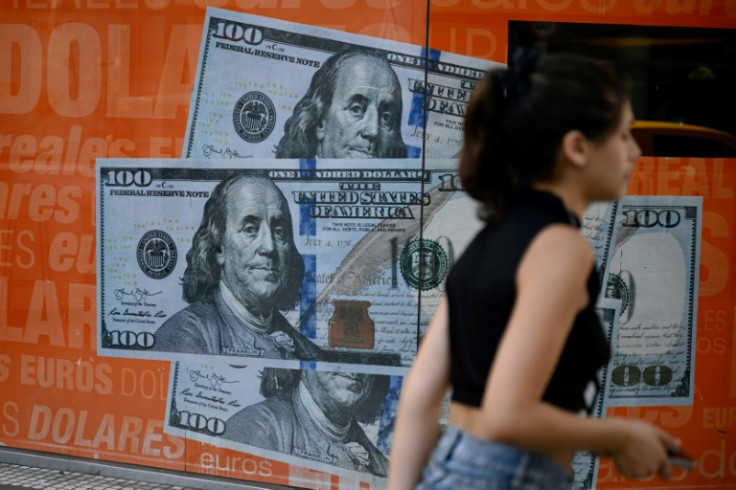'I Put $50K in a Shoe Box and Gave it to a Stranger': New York Financial Columnist Scammed
Around 21 million US adults have been affected by identity theft crimes

Charlotte Cowles is a New York-based columnist for The Cut and the New York Times who delivers financial advice by revealing her first-hand experiences.
Recently, Cowles revealed that she had lost thousands in an elaborate financial hoax. "I put $50,000 in cash in a shoe box," the columnist wrote.
In October 2023, Cowles received a call from an "Amazon" branch. The call worker said that her name was Krista and told the columnist that she had been the victim of identity theft.
While her order history displayed purchases of groceries and other homely items, Cowles was told that she had recently spent $8,000 on Apple products, namely iPads and MacBooks.
After Krista transferred the call to the "Federal Trade Commission", which allegedly deals with fraudulent activity, Cowles was introduced to a man who said his name was Calvin Mitchell.
On the phone, Mitchell proceeded to reel off Cowles' personal information.
"The man on the phone knew my home address, my Social Security number, the names of my family members, and that my 2-year-old son was playing in our living room," Cowles said.
"He told me my home was being watched, my laptop had been hacked, and we were in imminent danger."
The so-called investigator went on to accuse Cowles of being involved in a series of drug-related crimes across the US and money laundering crimes in Jamaica and Iraq.
"He texted me a drug-bust photo of bags of pills and money stacked on a table. He told me that there were warrants out for my arrest in Maryland and Texas and that I was being charged with cybercrimes, money laundering, and drug trafficking," the columnist wrote.
After the fabricated case had been presented, the call was transferred to the "CIA", where Cowles was introduced to a man who called himself Michael Sarano.
To protect her assets from being frozen, the columnist was instructed to get $50,000 out in cash.

Despite questioning whether or not she was being scammed, the 39-year-old was was told to hand over the large sum in cash and would receive a check in return.
Cowles said that was made to feel like she "had no other choice" as she was later forced to meet one of Michael's colleagues outside her apartment for a cash handover.
Before meeting with one of the perpetrators outside of her apartment, the columnist said that she felt "pathetic" as she begged the male voice on the phone to protect her from any harm.
Almost immediately after she had handed over a shoe-box of one hundred dollar bills, Cowles returned to the house and realised that she had been the victim of an elaborate and organised swindle.
The police were called and Cowles recalled feeling humiliated.
"I still don't believe that what happened to me could happen to anyone," she said.
In the US, multinational analytics company Gallup, said that 15 per cent of American households have lost money to fraudulent schemes. Like Cowles, 8 per cent of US nationals have also been personally targeted in organised theft crimes - equal to roughly 21 million adults.
A recent survey, conducted by Cifas, the UK's leading non-profit fraud prevention service, and Global Anti-Scam Allegiance (GASA), an organisation dedicated to raising the awareness of fraud, found that at least 10 per cent of Britons have lost money to scams or identity theft crimes in the last 12 months.
The study, which interviewed 2,000 British citizens, also reported that 62 per cent of the respondents said that they had received scam messages at least once per month.
Mike Haley, the CEO of Cifas, said: "UK consumers continue to find themselves increasingly targeted by phishing and smishing campaigns offering financial help or investment opportunities, employment scams, fake adverts for rental properties as well as purchase and delivery scams."
"Now more than ever, we need to ensure there is more, effective regulation of online platforms and recognise the serious harm that their fraudulent content is causing to consumers."
© Copyright IBTimes 2025. All rights reserved.






















